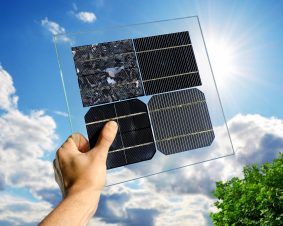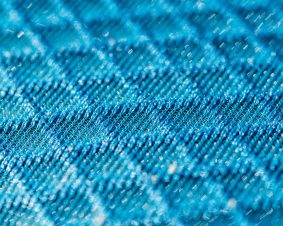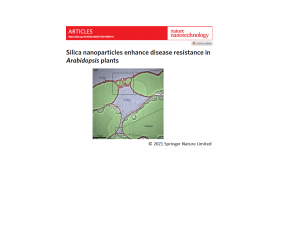 >
Spotlight August 2020: The nanoGRAVUR Grouping approach
>
Spotlight August 2020: The nanoGRAVUR Grouping approach
In August, we would like to present a paper of the German BMBF project nanoGRAVUR. nanoGRAVUR dealt from 2015-2018 with the grouping of nanostructured materials with regard to occupational safety, consumer and environmental protection and risk mitigation. The approach is now described by the project partners in this paper.
Due to the variety of synthetic nanomaterials and the numerous modifications (differences in size, shape, chemical composition and surface functionalization), the effort required to investigate effects and behaviour within the framework of regulatory requirements is enormous. Given the variability of possible effects, it is almost impossible to examine the potential risk for each nanomaterial on a case-by-case basis. Grouping or analogy now aims to allow a reliable prediction of hazards from nanomaterials of a group without additional testing by identifying certain properties or parameters.
For each of the three different areas of occupational, consumer and environmental safety, different groups may emerge, but they are based on a harmonised set of material properties with specific analytical methods, descriptors and areas. Proof of concept is provided in this publication by quantitative data on 34 case studies.
Original Publication:
Wohlleben, W, Hellack, B, Nickel, C, Herrchen, M, Hund-Rinke, K, Kettler, K, Riebeling, C, Haase, A, Funk, B, Kühnel, D, Göhler, D, Stintz, M, Schumacher, C, Wiemann, M, Keller, J, Landsiedel, R, Broßell, D, Pitzko, S, Kuhlbusch,T (2019), The nanoGRAVUR framework to group (nano)materials for their occupational, consumer, environmental risks based on a harmonized set of material properties, applied to 34 case studies. DOI 10.1039/c9nr03306h

Weitere Spotlights
Spotlight March 2023: How can photovoltaics be made safe and sustainable?
Conventional photovoltaic systems often have only low efficiency, i.e. only a fraction of the solar energy is converted into electrical energy and made usable. For this reason, research is being conducted into innovative materials that can significantly increase the energy yield and thus also enable more electrical energy to be generated from renewable sources. However, […]
Read moreSpotlight November 2022: Photonics in nature and bioinspired designs
Science has always taken nature as a model and imitated it. If you look at the field of photonics, i.e. the use of optical technologies for information processing, transmission or storage, the colorful examples in the animal and plant world are perfect basic drawers for technical applications. While colors in nature are used either for […]
Read moreSpotlight February 2023: New sustainable and promising method to give cotton textiles an antiviral and antibacterial finish
Textiles have been the subject of research into functionalization for many years, especially also to repel bacteria and viruses. Since the development of nanotechnological processes, there have been many attempts to incorporate UV protection with nano-titanium dioxide, or to provide textiles with anti-bacterial properties with nanosilver (see cross-sectional text “Nanoparticles in Textiles”). But nanosilver has […]
Read moreSpotlight December 2021: Silica nanoparticles improve plant disease resistance
The resistance of plants to various pathogens is often increased in agriculture with various chemicals (“fertilizers”). A new direction is being taken with the use of nanoparticles. These can be sprayed on the plants. In the present study, the model plant Arabidopsis was used to investigate whether silicon dioxide nanoparticles (SiO2) can increase resistance to […]
Read more


